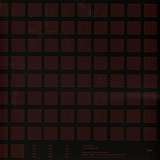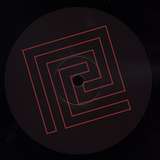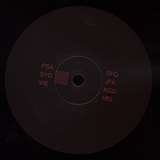Thomas Brinkmann: A 1000 Keys
’’A 1000 Keys’ is a fatal hommage to minimalism and a consequent denial of virtuosity’
- A1 PSA
- A2 SYD
- A3 VIE
- B1 SFO
- B2 JFK
- B3 KGD
- B4 HEL
- C1 LAS
- C2 TBS
- C3 MEX
- D1 TLV
- D2 CGN
- D3 LED
- D4 NRT
- D5 KIX
’Thomas Brinkmann takes his seductive reductionism to the next level. ’A 1000 Keys’ is a harsh meditation on the expressive qualities of digital sound production. In translating the timbre of a grande piano into binary codes, thus rebuilding its corpus with 0 and 1s, Brinkmann subverts the sensual qualities of this proto-romantic instrument in a sardonic way. Replacing the musician with a mathematically precise series of frenetic repetition and intriguingly dissonant difference, the result sounds at times like a violent ride through the brains of Schönberg or Webern, drained in amphetamines, at others like Feldman’s ephemeral sketches or Russolo’s futurist outburst.
Brinkmann’s conceptual framework is resonating in the tracktitles. Using shortcuts of international airports, he refers to non-places that establish their own space-and-time continuum, while lacking individual identity and history. These functional scenarios are steril passages for anonymous, objectified masses, at the same time there's hardly a better place to grasp the very subjective character of time.
»A 1000 KEYS« is a fatal hommage to minimalism and a consequent denial of virtuosity and the idea of creative genius. Paraphrasing the romantic idea of human perfection, Brinkmann found a way to create sonic algorithms of tenderness and brutality, establishing dramatic expressiveness in his constructivist analytics. The result is of radical beauty.’
Thomas Brinkmann: A 1000 Keys
’’A 1000 Keys’ is a fatal hommage to minimalism and a consequent denial of virtuosity’
’Thomas Brinkmann takes his seductive reductionism to the next level. ’A 1000 Keys’ is a harsh meditation on the expressive qualities of digital sound production. In translating the timbre of a grande piano into binary codes, thus rebuilding its corpus with 0 and 1s, Brinkmann subverts the sensual qualities of this proto-romantic instrument in a sardonic way. Replacing the musician with a mathematically precise series of frenetic repetition and intriguingly dissonant difference, the result sounds at times like a violent ride through the brains of Schönberg or Webern, drained in amphetamines, at others like Feldman’s ephemeral sketches or Russolo’s futurist outburst.
Brinkmann’s conceptual framework is resonating in the tracktitles. Using shortcuts of international airports, he refers to non-places that establish their own space-and-time continuum, while lacking individual identity and history. These functional scenarios are steril passages for anonymous, objectified masses, at the same time there's hardly a better place to grasp the very subjective character of time.
»A 1000 KEYS« is a fatal hommage to minimalism and a consequent denial of virtuosity and the idea of creative genius. Paraphrasing the romantic idea of human perfection, Brinkmann found a way to create sonic algorithms of tenderness and brutality, establishing dramatic expressiveness in his constructivist analytics. The result is of radical beauty.’




